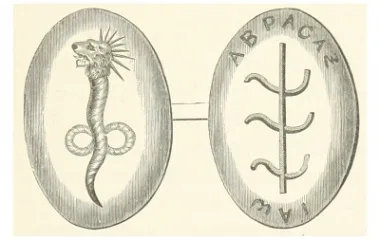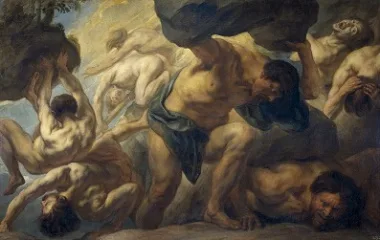Greek Concepts Abraxas
Contents
Greek Concepts Abraxas
The concept of Abraxas is a fascinating and complex one that has its roots in ancient Greek philosophy and religion. Abraxas is a word that has deep mystical and esoteric significance, and it is associated with a variety of different concepts and symbols. In this article, we will explore the origins and meanings of Abraxas, as well as its relevance in modern times.
The Origins of Abraxas
The origins of the concept of Abraxas can be traced back to the Gnostic traditions of ancient Greece. The term Abraxas is thought to be derived from the Greek words abrazo and sacred name. In Gnostic belief, Abraxas is often depicted as a god with the head of a rooster, the body of a man, and the legs of a serpent. This unique and enigmatic imagery represents the duality and complexity of Abraxas as a deity.
Abraxas is also associated with the number 365, which corresponds to the number of days in a year. This further emphasizes the significance of Abraxas as a symbol of wholeness and completeness. In Gnostic cosmology, Abraxas is believed to be the source of all creation and the ruler of the material world.
As Gnosticism spread throughout the ancient world, the concept of Abraxas became intertwined with various other belief systems and religions, including Christianity and Judaism. The figure of Abraxas was often incorporated into amulets and talismans, which were believed to possess magical powers and offer protection to the wearer.
The Symbolism of Abraxas
The symbolism of Abraxas is rich and multifaceted, reflecting the complexities of the human experience. The rooster’s head represents vigilance and the ability to see both the past and the future, while the human body symbolizes the divine spark within each individual. The serpent’s legs represent the dual nature of existence, with the potential for both good and evil.
Abraxas is often depicted holding a whip, which symbolizes his dominion over the material world. This imagery reflects the Gnostic belief in the inherent duality of the physical realm, as well as the need to transcend the limitations of the material world in order to attain spiritual enlightenment.
Another important symbol associated with Abraxas is the Greek letters that spell out his name. Each letter is assigned a numerical value, and when added together, they total 365. This numerical significance underscores the holistic and all-encompassing nature of Abraxas as a divine being.
The Relevance of Abraxas Today
Although the concept of Abraxas originated in ancient times, its relevance and significance endure to this day. The symbolism of Abraxas continues to inspire artists, thinkers, and spiritual seekers, who are drawn to its enigmatic and thought-provoking nature.
Many modern occult and esoteric traditions incorporate the figure of Abraxas into their belief systems, viewing him as a symbol of transcendence and spiritual evolution. The duality and complexity of Abraxas reflect the inherent contradictions and paradoxes of human existence, serving as a potent symbol of the struggle to reconcile opposing forces within oneself.
Furthermore, the concept of Abraxas has been embraced by various countercultural movements and subcultures, who view him as a symbol of rebellion and nonconformity. Abraxas embodies the spirit of defiance and individuality, challenging established norms and conventions in pursuit of higher truths and deeper meaning.
The Legacy of Abraxas
The legacy of Abraxas endures as a powerful and enigmatic symbol of the human experience. From its origins in ancient Gnostic traditions to its continued relevance in modern times, Abraxas continues to captivate and inspire those who seek to delve into the mysteries of existence and consciousness.
Abraxas serves as a reminder of the inherent duality and complexity of the human condition, urging us to embrace and transcend the contradictions and paradoxes that define our lives. As a symbol of wholeness and completeness, Abraxas invites us to explore the depths of our own being and strive for spiritual evolution and enlightenment.
Ultimately, the concept of Abraxas challenges us to confront the fundamental questions of existence and seek a deeper understanding of the mysteries that lie at the heart of the universe. Whether viewed as a deity, a symbol, or a philosophical concept, Abraxas continues to provoke contemplation and exploration of the profound truths that shape our reality.
Share this content:




Post Comment